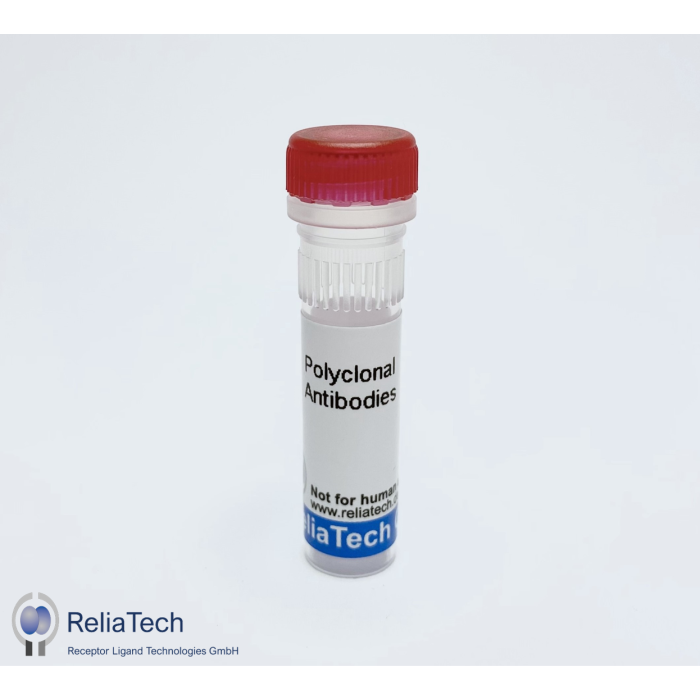Description / anti-human Wnt-5a polyclonal antibody
Wnt-5a is one of the most highly investigated non-canonical Wnts and has been implicated in almost all aspects of non-canonical Wnt signalling. In terms of cancer development, Wnt-5a has, until recently, lived in the shadow of its better-characterised relatives. This was largely because of its apparent inability to transform cells or signal through the canonical beta-catenin pathway that is so important in cancer, particularly colorectal cancer. Recent work in a wide range of human tumours has pointed to a critical role for Wnt-5a in malignant progression, but there is conflicting evidence whether Wnt-5a has a tumour-promoting or -suppressing role. Emerging evidence suggests that the functions of Wnt-5a can be drastically altered depending on the availability of key receptors. Hence, the presence or absence of these receptors may go some way to explain the conflicting role of Wnt-5a in different cancers.
More Information
| Size | 200 µg |
|---|---|
| Source | Rabbit |
| Isotype | Rabbit IgG |
| Biological Activity | Western Blot: Use 1-5 µg/ml |
| Clone Nr. | Rabbit IgG |
| Species Reactivity | Human |
| Formulation | lyophilized |
| Buffer | PBS |
| Reconstitution | Centrifuge vial prior to opening. Reconstitute in sterile water to a concentration of 0.1-1.0 mg/ml. |
| Stability and Storage | The lyophilized antibody is stable for at least 2 years at -20°C. After sterile reconstitution the antibody is stable at 2-8°C for up to 6 months. Frozen aliquots are stable for at least 6 months when stored at -20°C. Addition of a carrier protein or 50% |
| Antigen | Recombinant human Wnt-5a |
| Application | WB |
| Synonyms | Wnt-5a; Wnt5a; Wnt 5a; Wnt |
| Uniprot ID | P41221 |
| Protein RefSeq | NP_003383.2 |
| mRNA RefSeq | NM_003392.4 |

